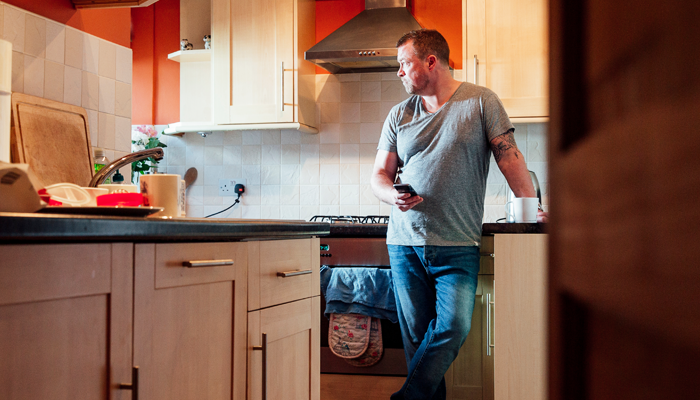Homeless Network Scotland have published the first annual check-up report on Scotland’s Housing First Pathfinder. Martin Gavin, Head of External Relations, picks out the key points.
Reaching the first birthday of the Pathfinder designed to scale up Housing First across six local authority areas in five partnerships, is an important milestone. With 252 tenancies created the programme is being watched with interest from other parts of the British Isles, as well as Europe, the USA and Australia. Scotland is widely, and rightly, viewed as a leader in implementing Housing First.
In Finland, the Housing First model has contributed to the only downward homelessness rate in Europe, with little or no rough sleeping in their capital city. Juha Kaakinen, CEO of Finland’s Y-Foundation, would have been the keynote speaker at this year’s conference. Instead Juha will join us for a webinar today at 2pm, taking questions and talking about their experiences. Commenting on Scotland’s progress in our first annual Housing First Check Up report, published today, Juha says: “In this work we need beacons of hope like the Pathfinder. The work done in Scotland to upscale Housing First is an inspirational example for many countries.”
The moment that is captured in this quote is built on a solid foundation laid by those innovators who have been sizing up the potential of Housing First for more than a decade in Scotland and supporting tenants to build and live their lives in those intervening years.
The knowledge that people were spending too much time in temporary accommodation has prompted a focus on rapid rehousing leading to all councils submitting Rapid Rehousing Transition Plans to the Scottish Government. With Housing First sitting as part of this wider approach the focus of the Pathfinder is to challenge and change our current processes in the short and long term, creating new approaches and gradually leaving behind the old; a process of transition that Pathfinders continue press ahead with during the current crisis.
Housing First is still working thanks to the incredible dedication and expertise of support providers up and down the country. And not only in the Pathfinder consortia, also in those council areas testing and operating their own local schemes.
The substantial international evidence behind Housing First points to a tenancy sustainment rate of 80-90%. Tenancy sustainment here has stayed above 90% for the full programme so far. Today’s Housing First Check Up Report also reveals that Edinburgh (98%) and Glasgow (92%) report the highest levels of local tenancy sustainment. A quarter of tenants have now been in their own home for more than a year (58) and 21 people have been at home for more than 18 months.
The time it takes to get someone into a home is also falling. Stirling (-64%) and Aberdeen/shire (-56%) saw the largest reductions of the Pathfinder areas, with Aberdeen/shire showing excellent progress in achieving the 28-day target, with 39% of people moving into their homes within one month. In Dundee we see a steady, sustained increase in new tenancies starting over the period of the report, along with a 41% fall in repeat homelessness.
The report also tells us where challenges exist. In the past year, four people have returned to homelessness, each person will have their own story and we want to understand them all. Sadly, eight tenants have died, with long-term prison sentences accounting for a further six ended tenancies. For the majority of our tenants, underlying health conditions and often a lifetime of multiple severe disadvantage means the odds are stacked against them. This makes the achievement of the 92% (as of March 2020) that remain in their own homes, supported by amazing staff, even more remarkable.
The Pathfinder is also helping us to better understand the impact that scaling up across Scotland will have on this success rate, with all 32 local authorities soon rolling out locally focused Rapid Rehousing Transition Plans. The approach must work for 500 as well as it does for 50.


